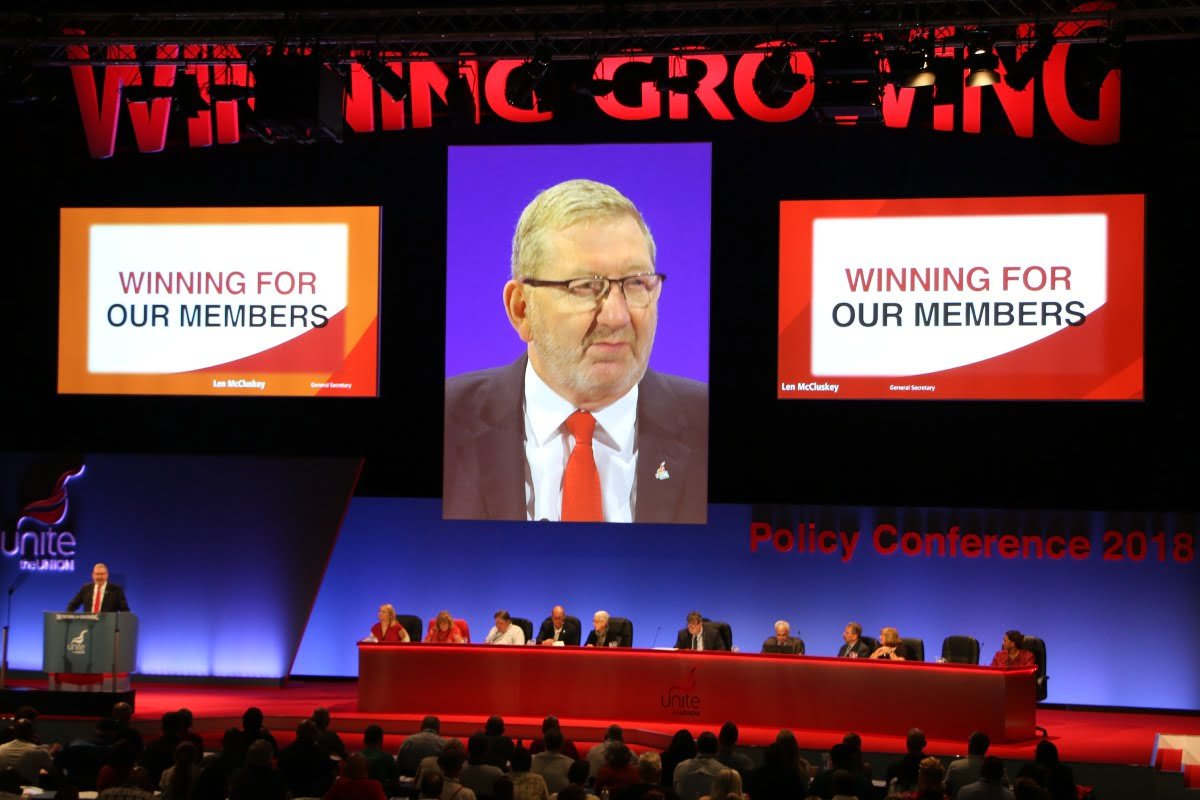Delegates from Unite are meeting this week to discuss changes to the union’s rules. Amongst the proposals are several important amendments that seek to increase the democracy, transparency and accountability within Britain’s largest trade union.
This week, myself and other Unite members will be attending the Unite Rules Conference in Brighton. I am going as an elected delegate from the South East Regional Industry Sector Committee, representing construction workers.
I am a pipefitter. Like a lot of other jobs today, most of my work is temporary, insecure employment, through an agency. Most of the time, our union’s national agreements for the construction sector are not in the slightest bit adhered to by the bosses.
We need a fighting union that will make a stand against these unscrupulous practices. To build this, we need union democracy, mass involvement from the membership and a leadership that is accountable to rank-and-file union members.
That is why I am proud to be proposing a rule amendment from my branch – Unite South East 6263 Building and Contracting Branch – about strengthening the democractic procedures across our union.
In summary, our rule amendment calls for:
-
The election of all union officials.
-
The right of recall for all union officials.
-
All officials and elected representatives (including the general secretary) to be paid the same wage as that of the members they represent.
The proposed amendment is number 73 (p63 in the final agenda booklet), concerning Rule 16, clause 16.1. Specifically, the amendment calls for the current clause 16.1 to be completely deleted and replaced with the following:
“Subject to the provisions of these rules and the powers of the independent scrutiniser, the election of the members of the Executive Council, the General Secretary, Assistant General/Regional Secretaries, full time Union Officials and full time Union National and regional representative officers representing Union members in all our sectors shall be elected, with being organised and conducted with the directions of the Executive Council.
“With also the aforementioned Union full time paid General Secretary, Assistant General/Regional Secretaries, officials and representative officers being paid the average wage of the Union membership they represent, with also being under the right of recall by the Union membership.”
This isn’t about singling out officers, but about having a fully democratic and membership-led union.
Other amendments at this year’s Rules Conference make similar demands. For example, rule amendment 111 calls for Unite members to have a greater say in deciding who represents the union on the Labour Party’s leading bodies, including the Labour NEC. Given that Unite is one of the main backers of Corbyn’s Labour, it is vital that grassroots union members be able to hold those representing us politically to account.
This is all the more important given amendment 101, which calls for greater political involvement from Unite members, by affiliating union branches to local Labour parties. In this way, trade union members can play a key role in kicking out the Blairites and transforming the Labour Party from the bottom up.
Elsewhere, on a related note, rule amendment 115 suggests that members should be disciplined for breach of agreed union policy – for example, speaking against or voting against official Unite policy.
This is important in relation to recent events. At last year’s Labour conference, for example, Unite’s delegates voted against attempts to bring in the mandatory reselection of Labour MPs, despite the fact that this had been agreed as Unite policy at our union’s 2016 policy conference. We cannot allow a repeat of such behaviour in the future.
Finally, there are several important amendments concerning the involvement of union members. For example, amendment 35 makes a number of proposals to give young Unite members greater representation and say in the union’s structures. It is vital that we recruit and integrate new young members, in order to renew our union and utilise the militant energy of young workers – particularly those in precarious industries.
Similarly, amendments 117-118 make suggestions regarding the involvement of Unite’s community membership, which allows those who are not in traditional workplaces to organise and get active. Again, this is an important step to take in order to harness the full force of our movement.
The debates taking place at this year’s Unite Rules Conference are therefore important. Only by taking these steps can we turn our union into a mass, member-led union – one capable of uniting our industrial struggles with a political struggle against the Tories and for a socialist Labour government.






